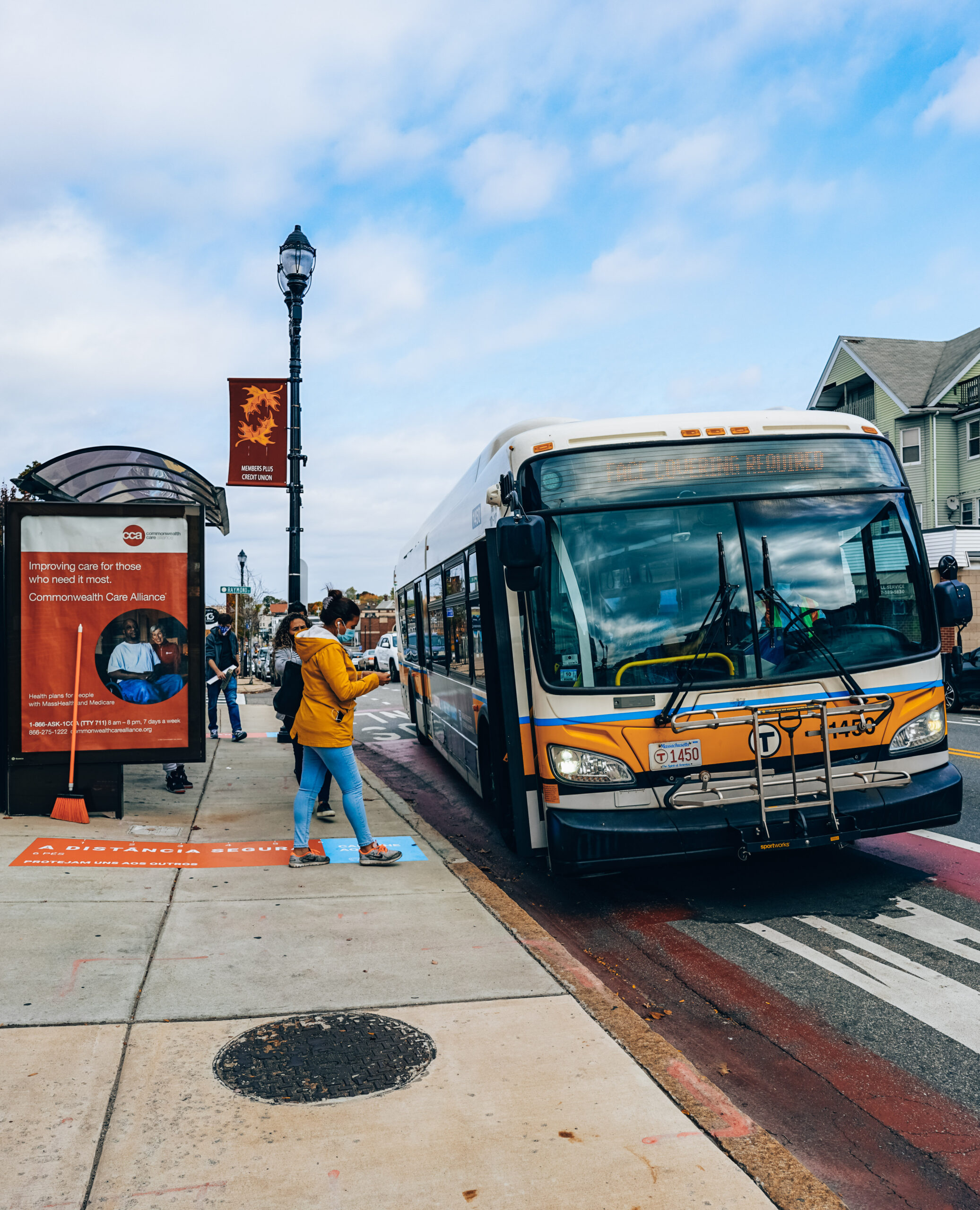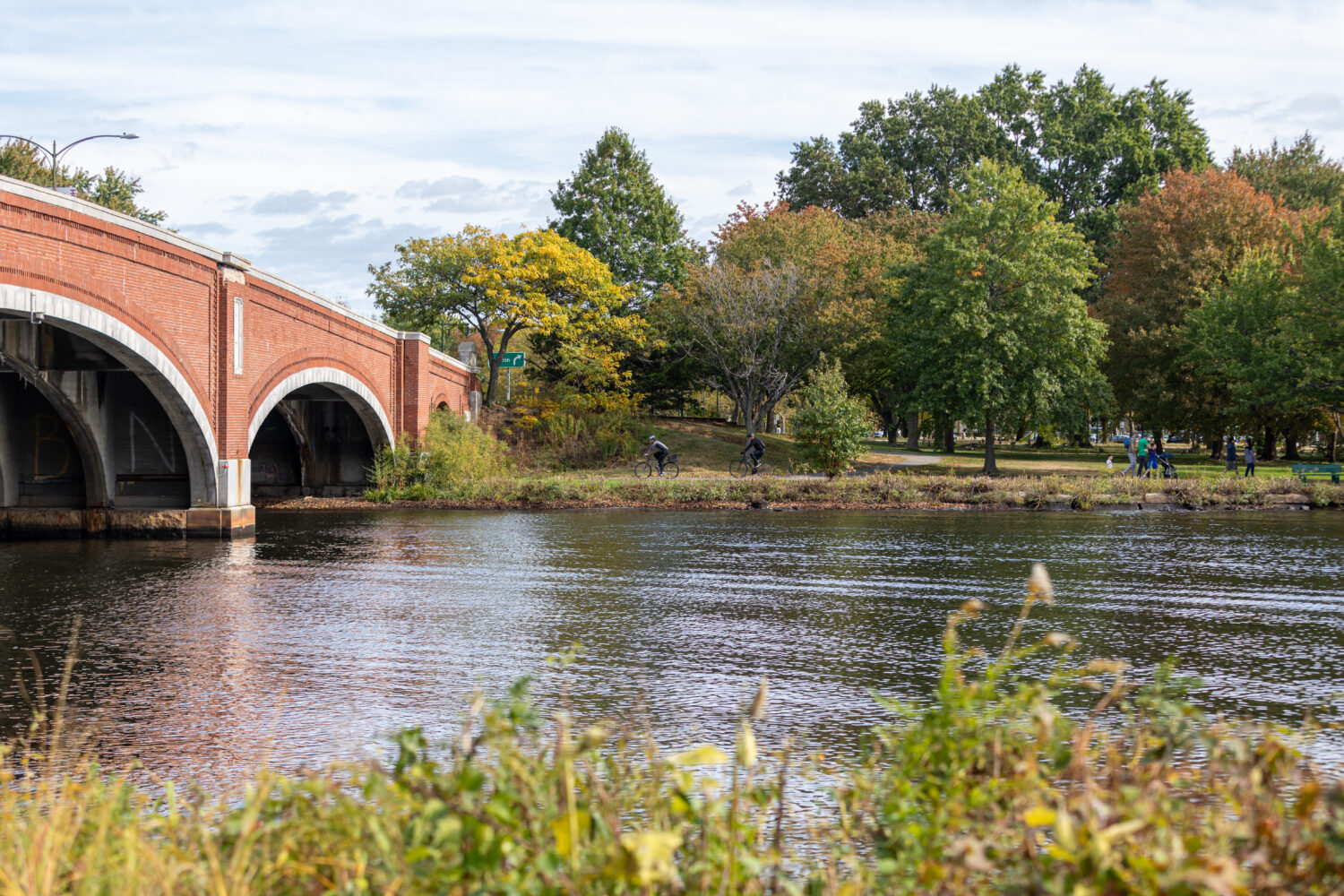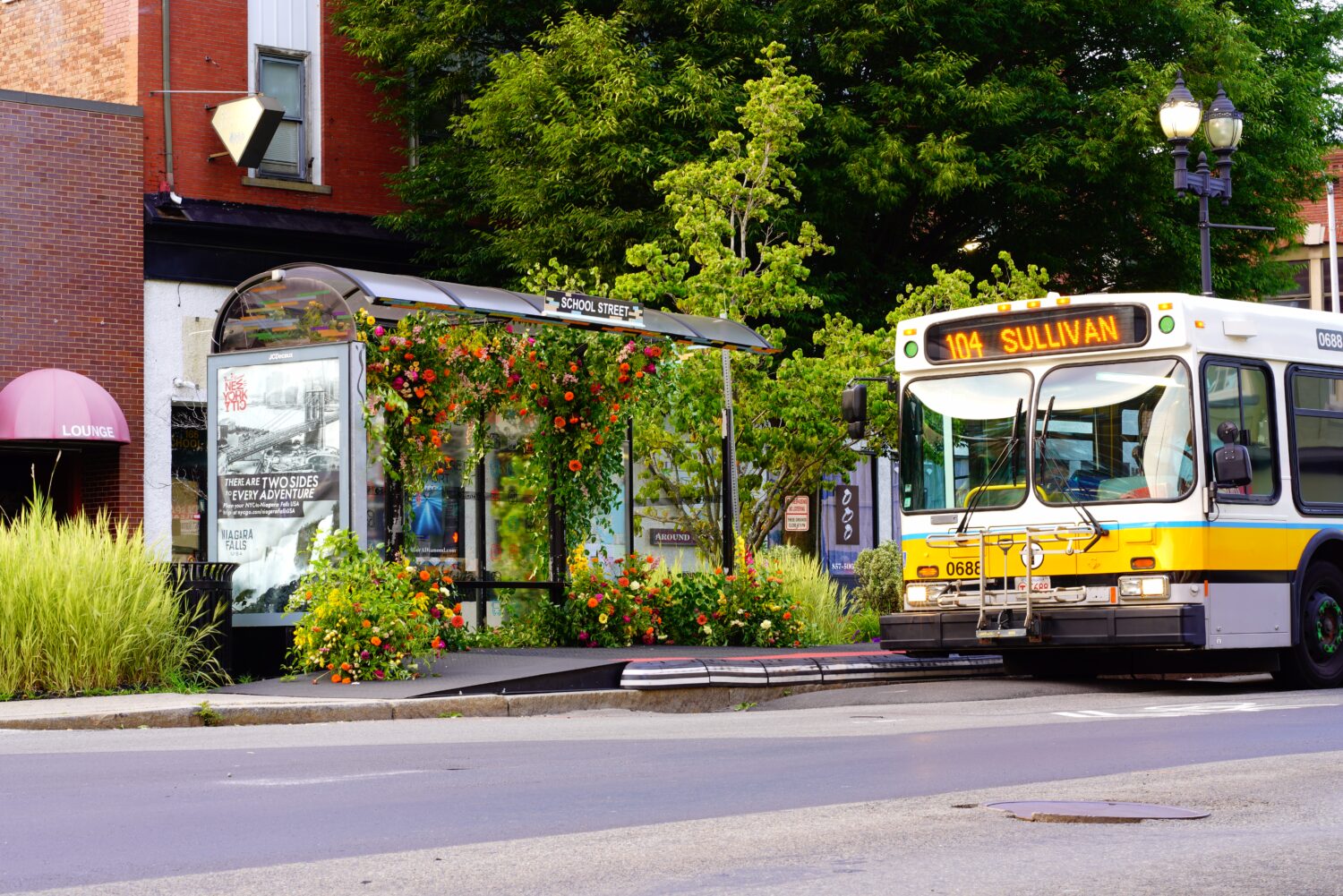During my senior year of high school, I found myself waiting at a bus stop without a way to pay. When the bus arrived, I told the driver my situation and he asked me a series of questions that led to me sharing that I was headed off to college soon. Impressed with my potential, the driver let me onto the bus. This moment illustrated to me how unfair our systems can be and the burden that some fare structures place on individuals. Since then, I’ve often wondered, “If I wasn’t headed to MIT, would I have been left standing on the sidewalk?”
As I learned more about the climate impacts of car trips, especially short trips, this experience also helped me understand the collective benefits of affordable transit. If the driver hadn’t let me on, I would have called a friend or family member to drive me home. Whether it be to court, doctor’s appointments, home, school, or work, we all have places we have to go. So, while my one trip may seem negligible, when accounting for all the times that people would have opted for transit, but instead had to rely on their social network to be a transportation provider, we’re talking about a lot of unnecessary vehicle trips.
We know that transportation is one of the largest sources of climate change causing emissions in Massachusetts, producing 40% of greenhouse gas (GHG) emissions in the state. To reduce GHG emissions, we must reduce barriers to low-carbon transportation options. One way to do this is by changing the way we fund transit.
The good news is a recent poll from MassINC Polling Group shows that Massachusetts voters are open to a change. Most surveyed voters (70%) strongly or somewhat support an additional 4% tax on income over $1 million a year, which would be used for transportation and public education. A supermajority (80%) strongly or somewhat support making discounted fares available to lower-income residents. Respondents also expressed significant support for making public transit free.
![[GP] Fair Transit Mass Inc Poll 01](https://barrfdn-prod.s3.amazonaws.com/image/3779/x_large.png?1644614717)
Voters likely understand that reducing financial barriers to public transit is good for everyone. The impacts don’t just end at where people are able to go. Even as progress is made on increasing access to affordable housing and healthcare, many people are struggling to make ends meet. Reducing transportation costs means lowering the likelihood that people have to choose between spending money to get from their home to the doctor’s office or foregoing safe housing or medical care all together.
Here’s the best news: guided by community members and organizers, transit agencies and partners have already started making headway on reducing fares.
In 2019, the City of Lawrence piloted making three routes fare-free; in March people will be able to ride any local bus in the Merrimack Valley Regional Transit Authority system for free for at least two years.
The Worcester Regional Transit Authority recently announced that buses will remain fare-free through at least 2022.
In 2021, the City of Boston ran a subsidized public transit pilot, which provided clear data about the relationship between reducing fares, increasing transit ridership, and reducing financial stress. The City also worked with the MBTA to make the Route 28 fare-free, and has recently announced that the fare-free bus pilot will be extended for two years and include two more high-ridership routes.
A significant number of municipalities in the state have expressed their willingness to support efforts to further reduce or eliminate transit fares.
It’s reassuring to see the increased public support for shifting the burden of transportation costs away from individuals to systems. At the same time, it’s important that we remain mindful of why a comprehensive approach to removing financial barriers is needed. As a former public employee, the unintentional impacts of piecemeal programs aren’t lost on me. There were too many days when I typed as quickly as I could to help a resident enroll in the discounted Bluebikes program because the person who drove them to City Hall was waiting outside, often circling the building. My excitement about a constituent accessing the affordable and publicly owned bike share system was diluted by the thought of the extra emissions being generated in the process.
Well-intentioned policies that only account for some people often create inequitable outcomes. For example, through Transportation Demand Management policies, municipalities often require companies operating out of new developments to offer free or reduced transit passes to their employees. People working for third parties (e.g., the companies that offer cleaning services) are often left out of these conversations. Moving to a system-based approach for reducing fares would mean that everyone, regardless of their employment status, can access the benefits of affordable transit.
It’s clear that Massachusetts voters, and increasingly the people they elect, support making transit more accessible by implementing system-wide mechanisms for reducing financial barriers. As we continue to shift gears in the funding and fare structures of our transit, we’ll all benefit from the subsequent impacts on the climate. We’ll be able to -physically and figuratively- breathe a little easier with each step or roll forward.




